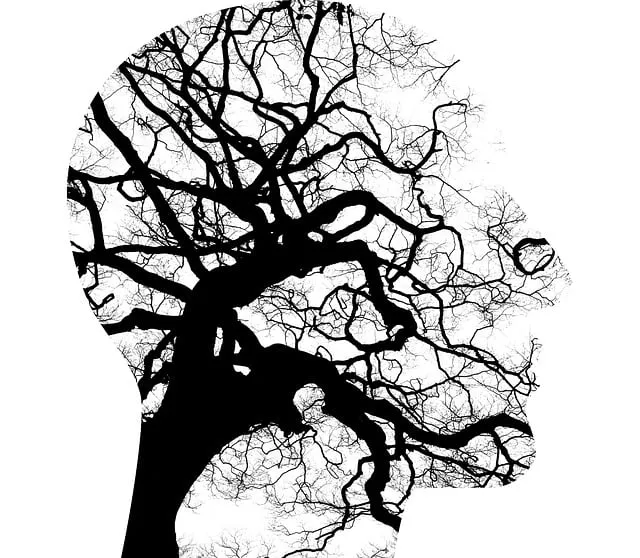Lone Tree Kaiser mental health programs empower communities with comprehensive crisis intervention team (CIT) training, focusing on stigma reduction, self-care, and evidence-based strategies. Their interactive workshops prepare healthcare workers, social workers, and law enforcement to effectively manage psychological distress, enhance community mental health awareness, and prevent caregiver burnout, ultimately improving access to quality care for diverse patient populations.
Crisis intervention teams (CITs) play a crucial role in providing immediate, specialized support during mental health crises. This article explores the importance of these teams and delves into the training programs that empower them. We examine the pioneering efforts of Lone Tree Kaiser mental health programs, highlighting their comprehensive approach to CIT training and ongoing support. Key components of effective training are dissected, along with the substantial benefits and community-wide impact of robust CITs.
- Understanding Crisis Intervention Teams: A Vital Resource in Mental Health Care
- The Role of Lone Tree Kaiser Programs in Training and Support
- Key Components of Effective Crisis Intervention Team Training
- Benefits and Impact on Community Mental Health Services
- Implementing and Sustaining Crisis Intervention Team Effectiveness
Understanding Crisis Intervention Teams: A Vital Resource in Mental Health Care

Crisis Intervention Teams (CITS) are a vital resource in mental health care, especially in areas like Lone Tree, where Kaiser mental health programs strive to provide comprehensive support. These teams typically consist of trained professionals from various backgrounds, including healthcare workers, social workers, and law enforcement officers, who collaborate to assist individuals facing severe psychological distress or a crisis related to mental illness. By integrating these teams into the community, access to immediate, skilled intervention is improved, which can significantly impact positive outcomes for those struggling with mental health challenges.
At Lone Tree Kaiser, mental health programs focus on not only treating symptoms but also reducing the Mental Illness Stigma Reduction Efforts through education and awareness. The Inner Strength Development approach emphasizes empowering individuals to navigate their crises with resilience. Additionally, Mental Wellness Journaling Exercise Guidance is offered as a tool for self-reflection and coping strategies, further enhancing the support provided by CITS.
The Role of Lone Tree Kaiser Programs in Training and Support

Lone Tree Kaiser mental health programs play a pivotal role in crisis intervention team training by providing comprehensive support and practical skills for individuals looking to make a positive impact in their communities. These programs are designed to equip participants with the knowledge and tools necessary to effectively navigate and de-escalate high-stress situations, fostering an environment of safety and emotional healing processes.
Through interactive workshops and real-life scenario simulations, Lone Tree Kaiser offers unique opportunities for personal growth and professional development. Participants gain insights into self-care routine development for better mental health and learn effective stress management techniques, ensuring they can support others while maintaining their own well-being. The programs’ focus on building resilience and enhancing communication skills is instrumental in fostering strong crisis intervention teams capable of making a lasting difference.
Key Components of Effective Crisis Intervention Team Training

Effective crisis intervention team (CIT) training programs at Lone Tree Kaiser mental health facilities incorporate several key components to ensure preparedeness and skillfulness among team members. First, mental wellness coaching programs development emphasizes fostering a culture of resilience and early identification of mental health concerns within communities. This involves equipping CIT team members with evidence-based strategies for promoting mental health awareness and providing supportive interventions.
Second, comprehensive risk assessment for mental health professionals is integral to effective CIT training. Team members learn to recognize warning signs of crises, assess potential risks, and implement de-escalation techniques to keep individuals safe. By combining these elements, Lone Tree Kaiser’s programs prepare teams to effectively navigate complex situations, offering compassionate support while prioritizing safety for all involved.
Benefits and Impact on Community Mental Health Services

Crisis intervention team training programs, such as those offered by Lone Tree Kaiser mental health programs, have a profound impact on community mental health services. By equipping healthcare providers with effective burnout prevention strategies for healthcare providers, these initiatives enhance the overall quality of care. Trained teams can swiftly and efficiently navigate crisis situations, providing immediate support to individuals in distress. This not only reduces the burden on emergency services but also fosters a sense of security within the community.
The benefits extend beyond immediate interventions. Regular training sessions promote self-awareness exercises among healthcare providers, encouraging them to recognize their own mental health needs. This proactive approach mitigates burnout and ensures that caregivers are better equipped to assist others. As a result, communities benefit from a more resilient and sustainable mental health service infrastructure, leading to improved access and outcomes for those seeking support.
Implementing and Sustaining Crisis Intervention Team Effectiveness

Implementing and sustaining the effectiveness of crisis intervention teams (CITs) is a multifaceted process that requires consistent effort and dedication. At Lone Tree Kaiser mental health programs, we understand that CIT training is just the beginning. To ensure long-term success, our comprehensive programs focus on continuous education and skill refinement for healthcare providers. Regular workshops and simulations help maintain the team’s proficiency in handling crises, fostering a culture of preparedness.
Moreover, we emphasize the development of inner strength among team members, recognizing that resilience is key in high-pressure situations. Through peer support initiatives and self-care strategies, our programs promote a healthy work-life balance, preventing burnout. Additionally, cultural competency training equips healthcare providers with the tools to navigate diverse patient populations, enhancing care quality and accessibility for all.
Crisis intervention team (CIT) training is a transformative force in community mental health care, as evidenced by the impactful work of organizations like Lone Tree Kaiser. Their programs emphasize key components such as comprehensive education, practical role-playing, and ongoing support, leading to significant benefits for both teams and individuals they serve. By investing in CIT training, communities can foster better crisis management, enhance service delivery, and ultimately improve mental health outcomes. Lone Tree Kaiser’s initiatives serve as a powerful model, demonstrating the potential for these teams to revolutionize care in today’s digital era.






